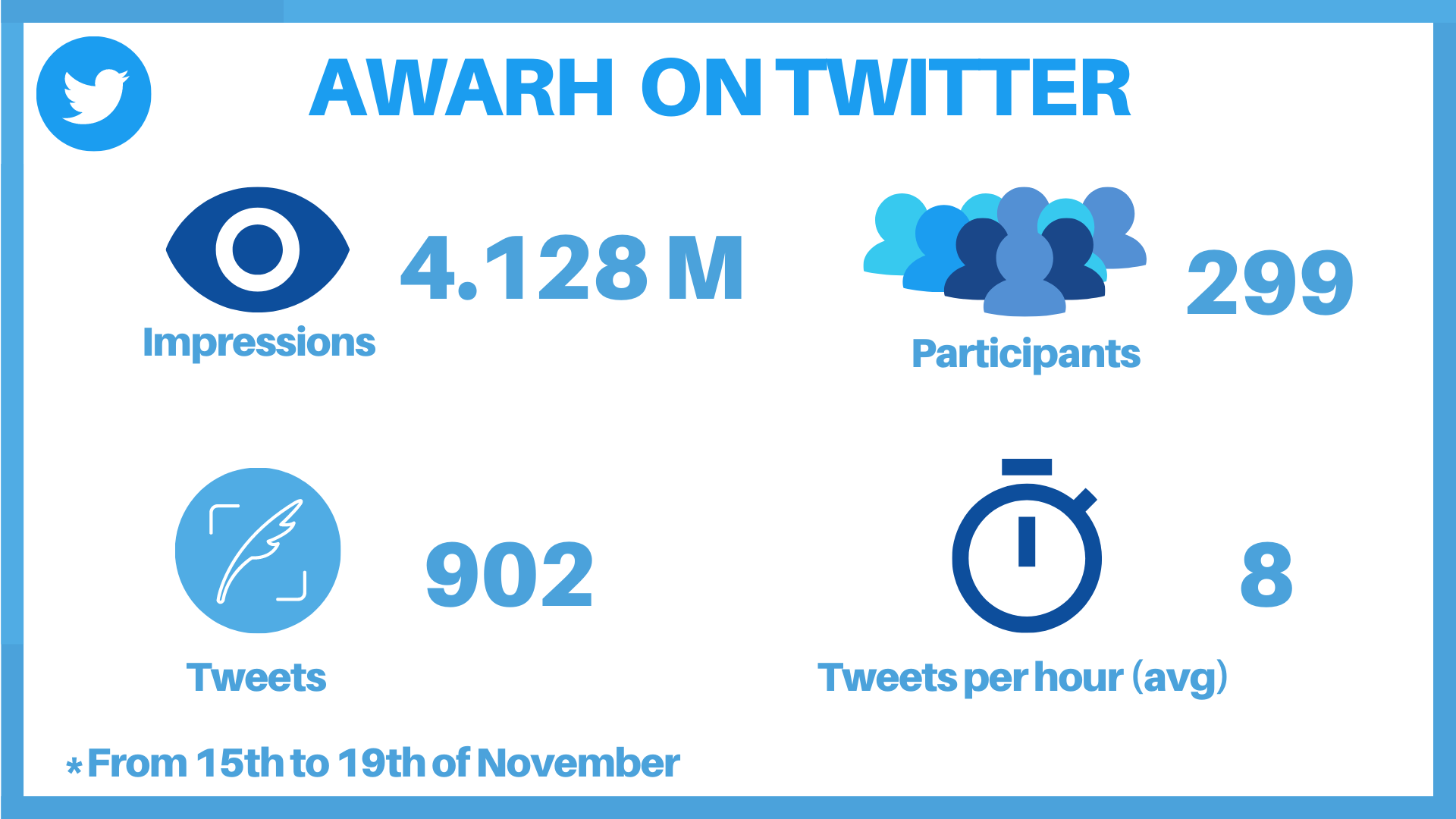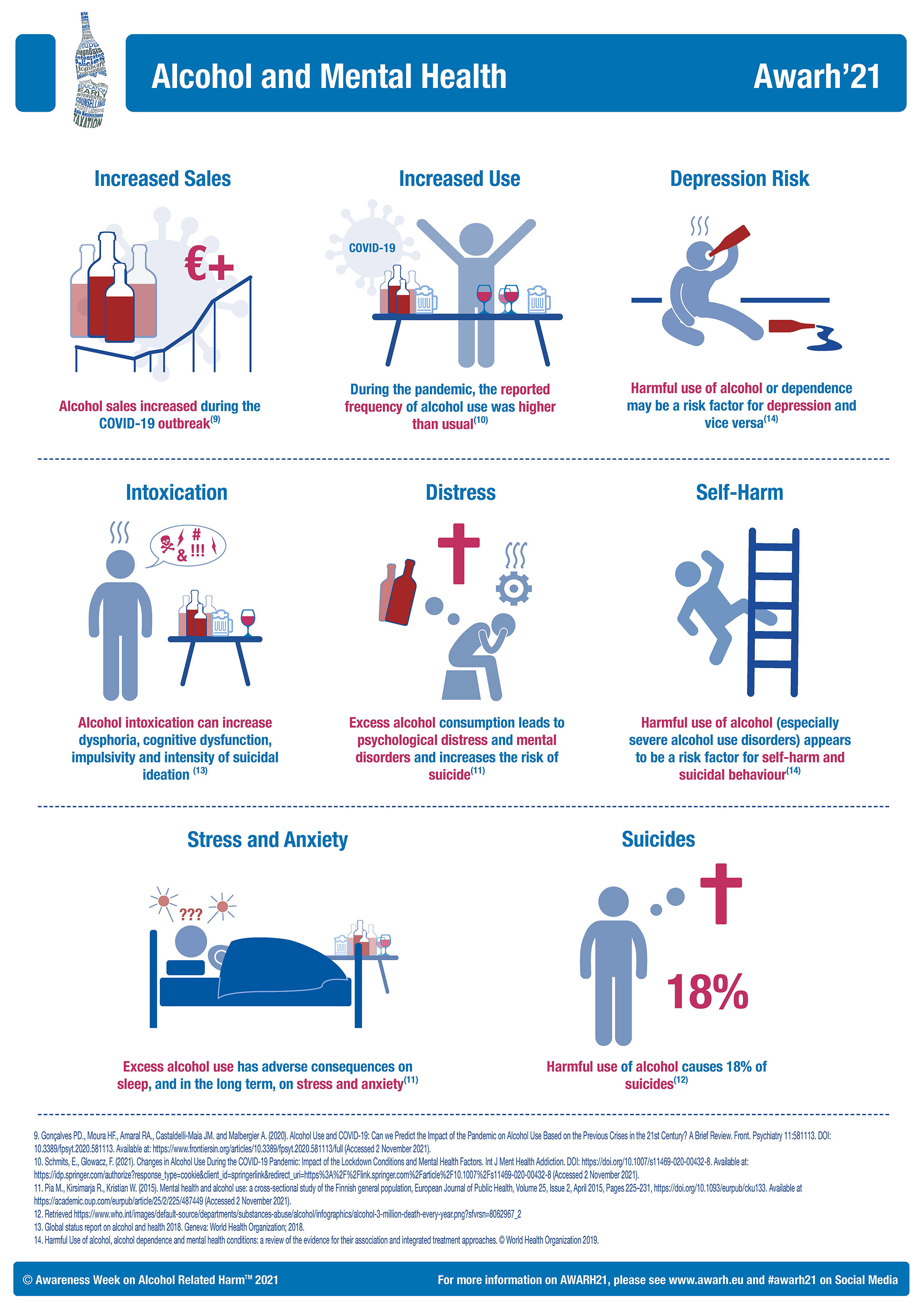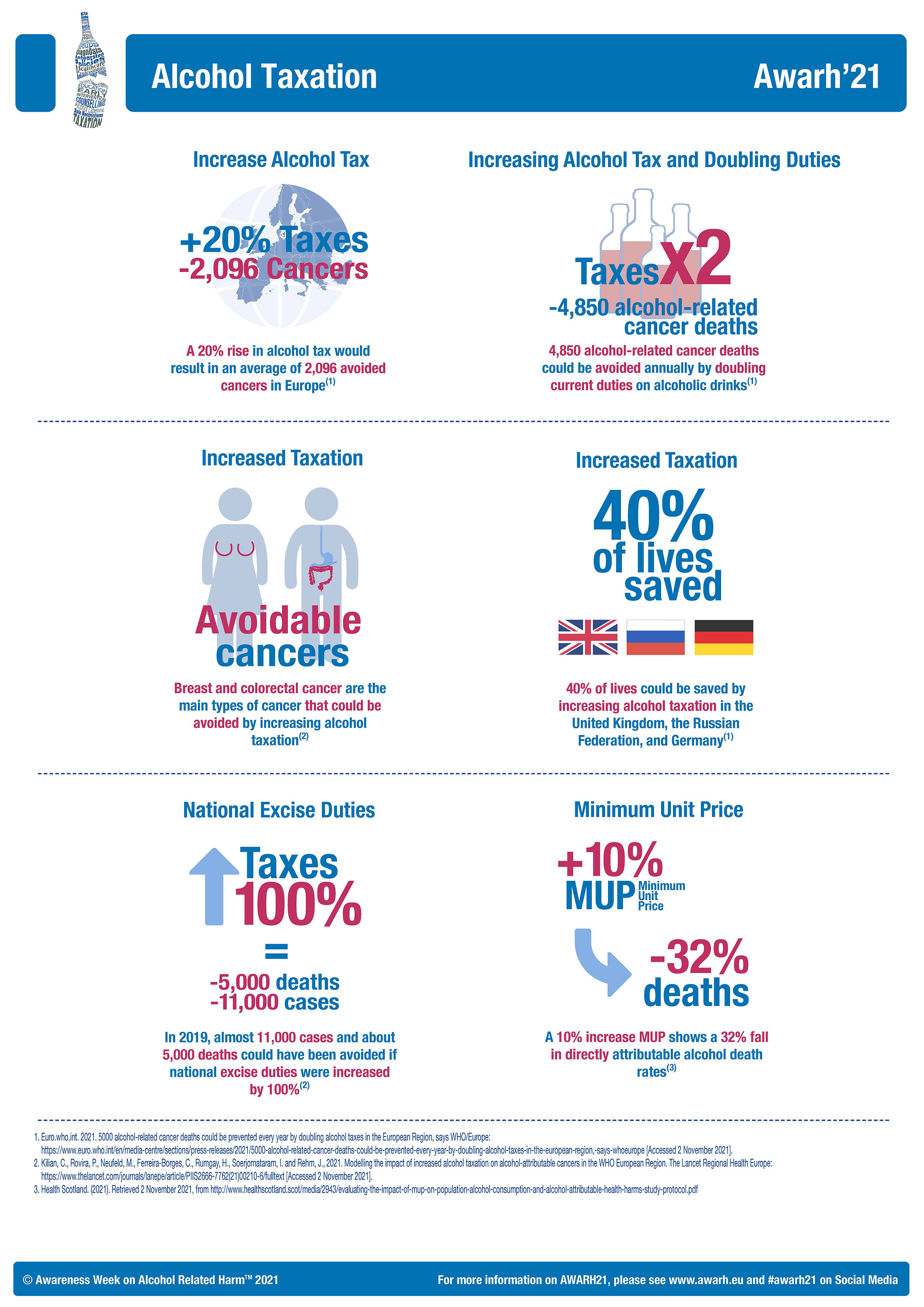Why the need for AWARH?
The idea of an 'Alcohol Awareness Week' was developed in 2013 by a group of civil society organisations in order to call for an integrated approach to alcohol-related harm in Europe. As the title itself explains, the aim of the week is to raise awareness around alcohol-related harm and catch the attention of the public, the media, and policymakers alike. The goal of AWARH is to generate an echo that resonates long after the week is over and to set a tradition for everyone working on alcohol-related harm to launch impactful events during this week.

Introducing AWARH 2021
The 9th AWARH took place from the 15th to the 21st of November 2021, with a combination of online and offline events and activities across the WHO European Region. These include conferences, webinars, social media campaigns and press releases. The vision for AWARH 2021 was to shine a light on the 'SAFER' initiative launched in 2018 by the WHO, with a specific focus on the objectives highlighted within the SAFER/Euro initiative. Each letter of the acronym SAFER refers to one of the 5 most effective and cost-effective evidence-based strategies to combat alcohol-related harm, as explained in more detail here .
The activities described within the report are divided into two broad categories, based on their scope: ‘Raising Awareness’ and ‘SAFER’. Raising Awareness is then subdivided into five sections: Alcohol industry interference, Policymaking: the way forward, Health risks of alcohol consumption, The need to protect young people and Alcohol and relationships. On the other hand, the subsections within SAFER relate to a letter of the acronym and the policy action each letter corresponds to.
The majority of activities described fall into the ‘Raising Awareness’ category and there are a few reasons to explain this. Firstly, raising awareness of alcohol-related harm may be considered a precondition necessary to the implementation of SAFER. In fact, awareness of the harm caused by alcohol is considered to be generally low not only in the general population but also among policymakers. The role of civil society and its advocacy work is therefore pivotal in ensuring that evidence-based messages are communicated effectively across all levels. Moreover, other important alcohol policy actions which are not included in the SAFER initiative, such as labelling of alcoholic beverages and the introduction of health warnings, also need to be featured as they can contribute to increased awareness of alcohol-related harm and improved health literacy.
Secondly, this highlights the need for even stronger collaboration between public health organisations working on alcohol policy and partners for future AWARH, in order to ensure adherence to a commonly agreed theme discussed well in advance.
It is also interesting to note that certain letters of SAFER received more coverage than others, possibly indicating that some policy actions might be perceived as more urgent or simply have greater awareness. This is the case for letter F (Facilitate access to screening, brief interventions and treatment) and letter E (Enforce bans or comprehensive restrictions on alcohol advertising, sponsorship, and promotion). On the contrary, activities showcasing letters S (Strengthen restrictions on alcohol availability), A (Advance and enforce drink-driving countermeasures) and R (Raise prices on alcohol through excise taxes and pricing policies) were less frequent. Future AWARH events might want to take this aspect into consideration and increase support for these policy areas as well.
Partnership & endorsements
The partners for AWARH 2021 were: the European Association for the Study of the Liver (EASL), the European Brain Council (EBC), the European Liver Patients Association (ELPA), the European Federation of Addiction Societies (EUFAS), the European Alcohol Policy Alliance (Eurocare) and the United European Gastroenterology (UEG).
AWARH 2021 was also supported by the Association of European Cancer League (ECL), the European Psychiatric Association (EPA), the European Public Health Alliance (EPHA), the European Federation of National Organisations Working with the Homeless (FEANTSA) and the Global Alliance of Mental Illness Advocacy Networks-Europe (GAMIAN-Europe).
The secretariat was hosted by the European Alcohol Policy Alliance (Eurocare).
This report was produced with the support from WHO European Office .
AWARH website
For more information on AWARH please visit the dedicated website available at this link.




